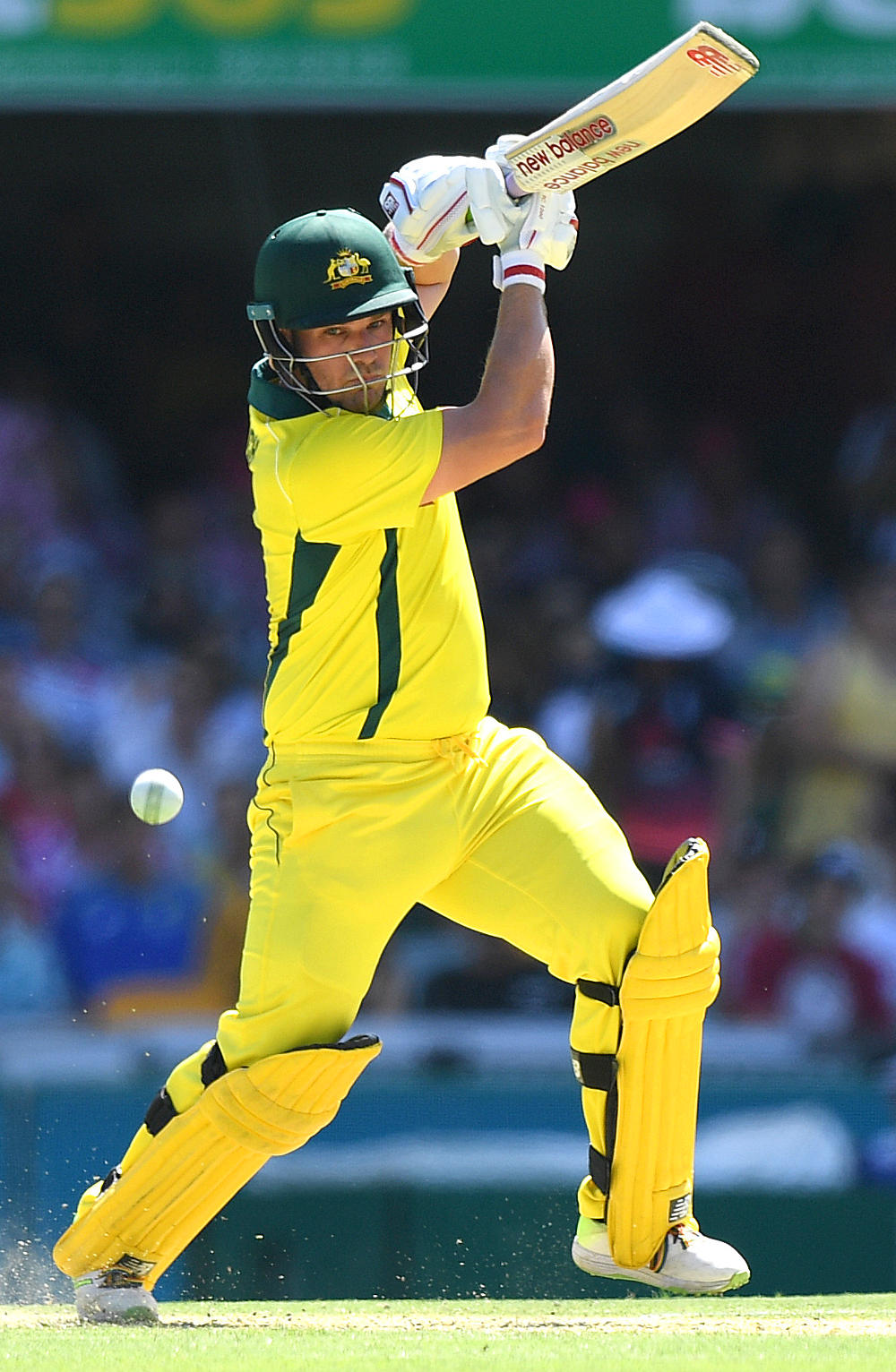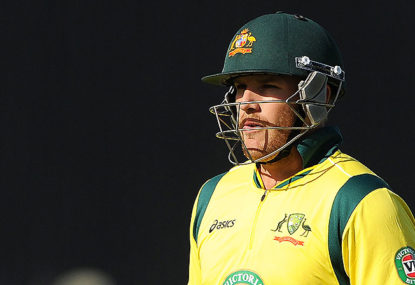In case anyone needed reminding of Aaron Finch’s brutal striking ability, he made two emphatic statements this week.
Chasing a meagre 117 runs for victory against Pakistan on Monday, Finch put the result beyond doubt, belting the Pakistani bowlers for 6 sixes in his unbeaten 68 off 33 deliveries.
The following day, he batted hosts Zimbabwe out of the contest, passing his own international world record on the way to 172, in a knock that included 16 fours and 10 sixes.
There was a distinct air of brutality to the batting, with the captain’s defiant aggression sending a strong message. Despite the relative lack of importance that the T20 tri-series holds, Australia is playing to win.
Not only does the series pit the Australians against the world No.1 side in Pakistan, it also provides an opportunity to regain a winning feeling, which has been depressingly absent since the ball-tampering scandal.
Finch understands the importance of this, and it is clear in his batting. An imposing presence at the crease, he has brutally attacked all opposition bowlers, while pushing hard for twos to ruthlessly eek out every run available, and put his opponents to the sword.
The skipper has led from the front, and his determination not only to win, but do so convincingly, is exactly what Australia needs in such a difficult time.

(AAP Image/Dave Hunt)
While Tim Paine was selected for the recent ODI series in England, largely for his leadership reasons, Finch has taken just two games to highlight that such a selection is unnecessary. The Victorian is the man to lead this team at the World Cup.
While Paine should be commended for his work with Australia’s developing side, the reality is that he isn’t suited to 50-over cricket. The captain made just 36 runs across the five-match tour of England, at a strike rate of 78.26.
As par-scores continue to increase, with England setting a benchmark for attacking batting, the Tasmanian is now best suited to being a Test-only player.
Across his ODI career, Paine has a strike rate of just 70.8. Contrastingly, his English counterpart, Jos Buttler, goes at 117.53.
This discrepancy is indicative of the fast rate at which England now score, which is demonstrated at the top of the order. In the recent series, Jason Roy (strike rate of 118.29), Jonny Bairstow (133.33), and Alex Hales (108.41), all scored rapidly at the start of the innings, heaping pressure on the Australian bowlers.
This aggression at the top of the order was what Finch brought to Pakistan and Zimbabwe, and it puts the fielding team well and truly on the back foot. As a leader in the ODI team, Finch can instil this attacking approach in his teammates.
Granted, Finch’s batting in England was far from rapid, going at a strike rate of 94.71, but it’s hard to deny his ability to score quickly and fluently. A change of mindset at the top of the order may be required, and if Finch’s efforts in Harare are anything to go by, he’s the man to lead these changes.
[latest_videos_strip category=”cricket” name=”Cricket”]
Interestingly, India, the second-ranked ODI nation, haven’t been as attacking as England, with Virat Kohli (99.46 strike rate in recent series against South Africa) coming in at number three behind Rohit Sharma (82.92) and Shikhar Dhawan (104.19). Importantly though, in that six-match series, only one 300-plus score was registered, providing a possible explanation for the lower strike rates.
With India now in England on a tour, which will include three ODIs, the English mentality is set to undergo a litmus test. If it succeeds, then it is certainly worth channelling.
While many of Australia’s woes have come from an unstable middle-order, that problem depends more on personnel than style, and establishing a consistent top three can help solve it.
Should Australia adopt the English approach, then players like Shaun Marsh, and potentially Marcus Stoinis will find themselves in the middle order. If they decide to bat more conservatively in the opening overs, then the top three will take a different shape, and the middle order will be correspondingly selected.
Irrespective, Australia must choose which philosophy to adopt before next year’s World Cup, and neither has room for Paine, unless he were to anchor the middle order.
Finch has demonstrated in Zimbabwe that he can lead Australia down the English path, and his involvement in the 2015 World Cup highlights a familiarity with the less rapid top-order approach.
Australia is currently at a crossroads, and Aaron Finch is the man to lead them, whichever path they choose.































































































